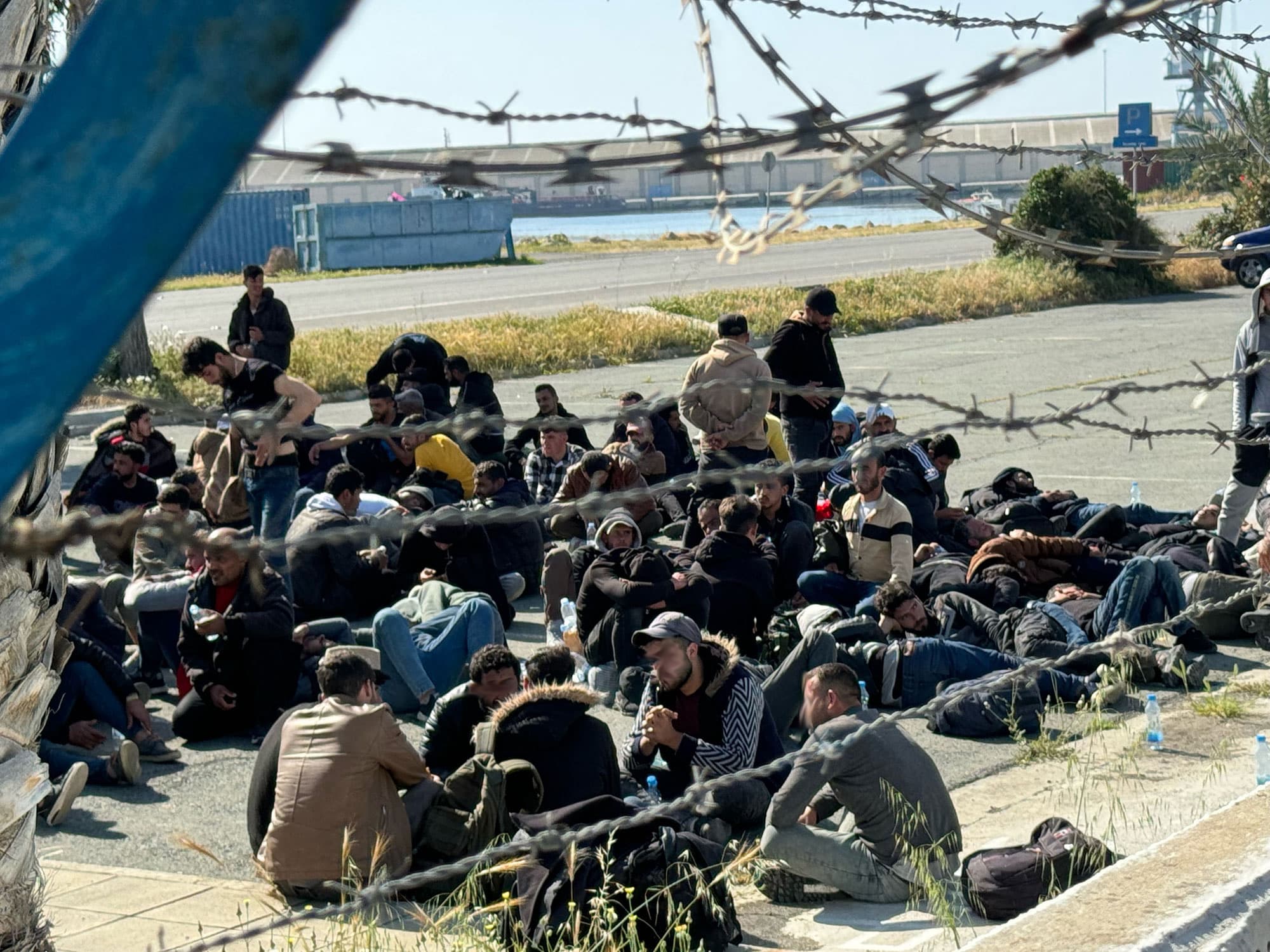Cyprus is looking for “immediate solutions” to deal with the migration crisis, House president Annita Demetriou said on Thursday, in a meeting with Lebanese ambassador Claude El Hajal.
The meeting was organised as more than 700 migrants from Lebanon arrived on Cyprus’ shores this week in 15 boats.
“We understand the difficult political situation in Lebanon, but we must remember that we are country facing the consequences of Turkey’s invasion and occupation, with serious demographic problems.
“We cannot allow this situation to continue, let alone manage a new wave of irregular migrants.”
Demetriou said the point of reference between Lebanon and Cyprus on the issue of migration is the bilateral agreement, where migrants trying to reach the island from Lebanon are intercepted and sent back.
“As such, the government must demand through political action, the immediate implementation of the agreement,” she said.
But Demetriou also stressed that Cyprus’ government is duty-bound to come clean as to the two boats which were purchased for increased patrols in Cyprus’ waters. Answers should be given on the agreement’s status, she said.
“On the other hand, as Cyprus, we must exert pressure through our status as an EU member state and mediate so that the EU intervenes to enable Lebanon to manage the criticality of the situation.”
The House president reiterated that legal protection on Syrian nationals “must be lifted immediately”. This is something Lebanon is also pushing for, she said.
“I have informed the ambassador that we are taking concrete steps and demanding from the European Union the immediate review of Syria’s legal status, so that the migratory flows to both Lebanon and Cyprus can be reduced.
“Today I am preparing a letter – an appeal to my counterparts and we are also considering a number of other initiatives in this direction.”
Demetriou was referring to Cyprus’ initiative seeking to designate parts of Syria safe, so as to be able to send migrants back to the war-torn country, which has been dealing with the fallout of its civil war that broke out in 2011.
El Hajal underlined that both Lebanon and Cyprus are victims of the crisis, dealing with disproportional migration pressures on the ground.
The ambassador said there was an urgent need for more EU support to Lebanon, as well as intensifying the need to fight migrant smuggling networks.
Earlier in the day, Interior Minister Constantinos Ioannou said Lebanon “must show signs of good will”, particularly after receiving significant EU support.
EU Commission spokeswoman Annita Hipper said they were in constant contact at a ‘high level’ and technocratic level with Cypriot authorities on increased migration flows.
Frontex, the European Union Agency for Asylum (EUAA) and Europol “will continue to provide the necessary financial and operational support in this direction.”
“We currently have a programme underway that also supports integrated border management in Lebanon, also costing €7 million,” she said, noting that ” these are also issues we are working on and discussing with Lebanon.”
Later in the day, President Nikos Christodoulides confirmed he will travel to Beirut early next week for talks with senior Lebanese officials on migration-related issues.
The president will be accompanied by the interior minister, the foreign minister, the chief of the National Guard, and other officials.
“We are indeed in a difficult position, a crisis, but I’d like to promise that we shall do everything possible – and I rule out nothing – so that we can deal with this situation,” Christodoulides added.







Click here to change your cookie preferences